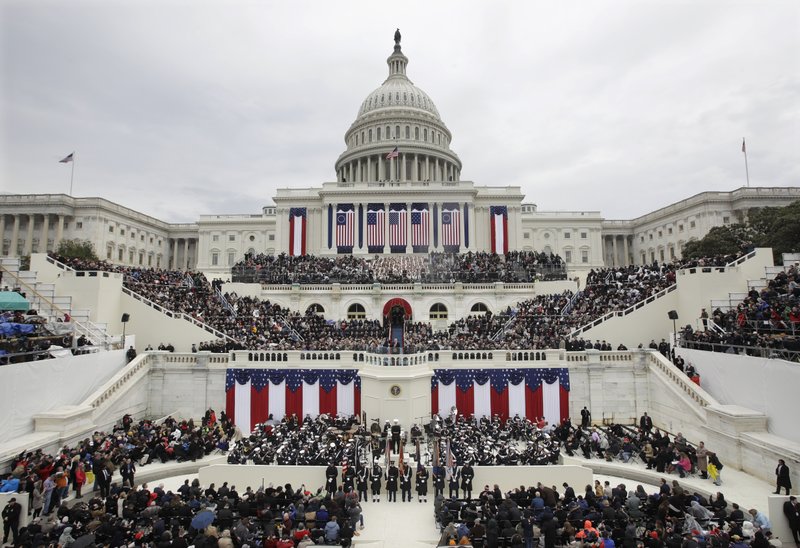WASHINGTON -- Big money from billionaires, corporations and NFL owners poured in for Donald Trump's inaugural festivities in record-shattering amounts, documents filed with the Federal Election Commission show.
Contribution records from Trump's inaugural committee, released Wednesday by the election commission, show Trump's total take of $107 million was about double the previous record set by former President Barack Obama, who collected $53 million in contributions in 2009. Obama had money left over to spend on the annual Easter egg roll and other White House events.
Trump's event was considerably lower-key than previous inaugural celebrations. That leaves a bit of a mystery: What the $107 million was spent on and how much was left over.
Trump's top inaugural donor was casino-owning billionaire Sheldon Adelson, who gave $5 million. He and his wife came away with prime seats for Trump's swearing-in ceremony on Jan. 20 and gained access to a private lunch with the new president and lawmakers at the Capitol. Phil Ruffin, another casino mogul and close friend of Trump, was among dozens of donors who gave $1 million each.
[PRESIDENT TRUMP: Timeline, appointments, executive orders + guide to actions in first 100 days]
At least eight NFL team owners kicked in big money for the inauguration. Seven of them, including Patriots owner Bob Kraft, whose team won the Super Bowl and visited the White House on Wednesday, gave $1 million apiece. Kraft's donation came via his limited liability company.
Trump plans to name the New York Jets' Woody Johnson, one of those million-dollar donors, to be the U.S.' ambassador to the United Kingdom.
Asked whether the president feels conflicted about his committee accepting so much money from corporations and wealthy donors, White House spokesman Sean Spicer said Wednesday that financing the inaugural is "a time-honored tradition" and that there are "a lot of people who really take pride in helping us show the world a peaceful transformation of power."
Brendan Fischer of the Campaign Legal Center, a nonprofit pro-transparency group, countered: "If you take Trump at his word that when political figures accept large amounts of money from corporate interests or special interests that they're indebted to those big donors, there's certainly reason to question what donors to Trump's inaugural committee might expect in return."
As is often the case with campaigns and inaugurations, some of the donations were from people doing business with the federal government.
Billionaire Texan Kelcy Warren, whose company is building the Dakota Access Pipeline, gave the inaugural committee $250,000. Christopher Cline, a billionaire coal magnate who owns Foresight Energy Partners, gave $1 million. Trump has vowed to bring back coal jobs, and his administration quickly approved the Dakota Access Pipeline.
Businesses that donated at the $1 million level included Bank of America, Boeing, Dow Chemical, Pfizer and Qualcomm. Companies also gave big contributions of goods and services, including nearly $500,000 in "vehicle expenses" from General Motors. AT&T made combined in-kind and cash donations of $2.1 million, and Microsoft's combined total was $500,000.
Casino mogul Steve Wynn donated entertainers and production work valued at $729,000 for the Chairman's Ball, where the Wynn's ShowStoppers group performed.
Russian-American businessman Alexander Shustorovich also was among the $1 million donors to Trump's inauguration committee. The Republican National Committee refused a contribution from the U.S. citizen in 2000, citing news reports at the time that cautioned about his ties to Russian business. In more recent years, he's given money to the party, to 2012 presidential candidate Mitt Romney, and to Senate Majority Leader Mitch McConnell, election commission records show.
Inaugural committees have broad leeway in how they spend their money and what they do with the leftovers, although some limitations apply, according to Fischer.
Trump's inaugural committee has promised to "identify and evaluate charities that will receive contributions left from the excess monies raised."
A Section on 04/20/2017
